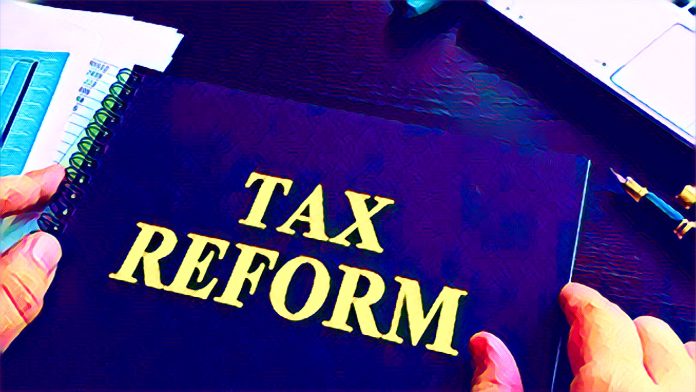KEY POINTS
- Tax reform also hopes that states will receive a bigger slice of the VAT take.
- It will also exempt small businesses with turnover below N50m from tax.
- The government will reduce income tax from 30% to 25% for companies for two years.
On Monday, the Nigerian Senate moved the Tax Reform Bills to a second reading. These four legislative proposals would be the most sweeping tax overhaul in the nation’s history.
On the most notable alteration, VAT distribution between federal government and states will rise by 40% from 15% to 55% for states and fall to 10% for the federal.
The promise of this reform is to offload more of the VAT revenue onto the state governments, which are financially strapped and need it.
In addition, the bills also propose that essential goods and services like food, pharmaceuticals and education should attract a zero rate of VAT.
In doing so, they also cut the company income tax rate from 30% to 25% for at least two years, a reduction that applies to companies nationwide.
Senate leader, Opeyemi Bamidele, on behalf of the chamber, presented the Tax Reform Bills to the Senate.
Bamidele said the bills aim to improve the tax system to the extent of reducing the burden on small businesses and also to ensure a fair sharing of revenue between the federal and state governments.
Notably, the minimum wage earners will not be paying Pay As You Earn (PAYE), as well as small businesses with an annual turnover of N50 million and below.
Part of the reform is in harmonizing many taxes like education and NASENI taxes into a single development levy of 2% which is very important for their development. This levy will help fund the newly created student loans scheme by 2030.
The reforms, however, have widespread support with some senators, such as Ali Ndume, questioning the timing.
But first, lawmakers must amend the Constitution according to Ndume. Senate Whip Mohammed Monguno urged the chamber to continue with the second reading, saying that further consultation would resolve all issues



